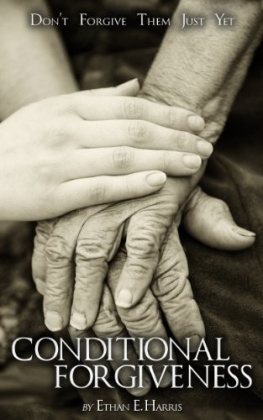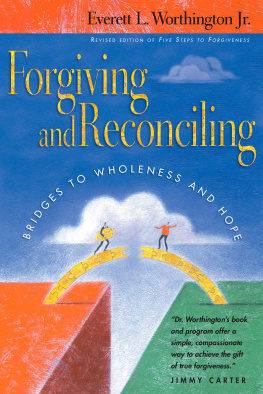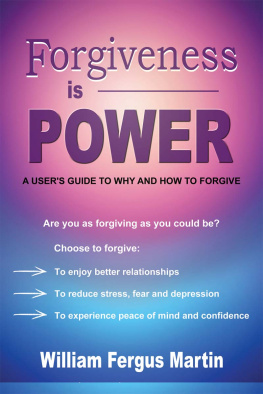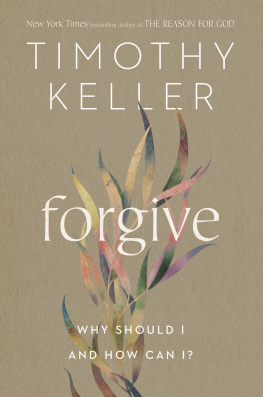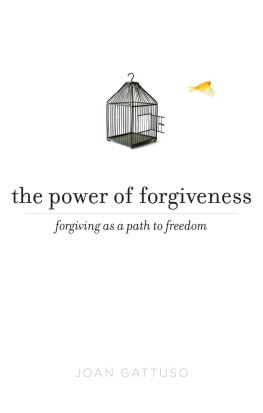CONDITIONAL FORGIVENESS:WHEN ITS GOOD TO SAYI DONT FORGIVE YOUETHAN E. HARRISConditional Forgiveness TABLE OF CONTENTS Conditional ForgivenessIntroduction Broken Relationships and the Nature of Reconciliation Eleven days after the Allies stormed Normandy, von Rundstedt and Rommel, the Desert Fox, suggested to Hitler that they sue for peace with their enemies except for Russia. That is, they should make haste, pursue with al regard and strive with al their might to achieve a peaceful resolution with Britain, Canada, the Norwegian Navy, the Free French and the US. The two men were motivated out of a realization of imminent destruction at the hands of the invading Allies. Hitler, on the other hand, did not see the distress which his military had fallen on. The Nazi and German Army front at Normandy was insufficiently prepared to repulse such a presentation of powerful forces.
Paratroopers were littered over the area, supply trains were set up, tanks had landed and thousands upon thousands of Allied troops were assaulting Hitlers Atlantic Wal . Hitler could not Conditional Forgiveness unknot the error tying him to final destruction: he was arrogant, proud and unwilling to admit a better force had undone him. His advisors saw their error, too late, but nonetheless realized. They realized they could not place conditions on the relenting of the Al ied onslaught; they knew they must sue for peace. Rommel and von Rundstedt realized the need for grace, yet may have never considered the need for repentance or correcting their grievous errors. They may have sought forgiveness and even, perhaps, realized certain conditions would be impressed on them to achieve that peace.
Whether or not the above conditions would have ever come about, Hitler was the responsible party to bring about the change. It was his decision to end the conflict. Now, what if the Allies, in their struggle to liberate the German occupied countries, the assaults on Britain and the quest to discover whether the rumors of mass atrocities in Europe were true, simply cal ed up Hitler and said, I forgive you. I know you are not repenting of any crime, but we feel we have to get Conditional Forgiveness over our bad feelings for you, so we forgive you? Would this have healed the enormous fracture that had occurred between our nations? Would this have stopped the destruction of mil ions of civilian lives? No. By offering up forgiveness before sincere repentance, we must be willing to realize that we have actual y done nothing profitable to restore failing or damaged relationships. For out of much affliction and anguish of heart I wrote to you with many tears; not so that you would be made sorrowful, but that you might know the love which I have especially for you (2 Corinthians 2:4).
Pauls first letter to the Corinthians, he argues, was not a letter to create sorrow in them, but a manifestation of the love of Christ in that rebuke. This is a very practical and real life situation where Matthew 18 comes alive. Paul applies the principle of addressing a wrong act or acts, not out of spite, but out of a need for reconciliation and fellowship in love. Paul tells the Corinthians in Chapter 2:4 that he was Conditional Forgiveness not motivated out of creating sorrow in them, but that in their correction and rebuke they would find the love which I have especially for you. Not to be misunderstood, Paul also makes very clear his feelings. He does not hide the fact that he wrote out of much affliction and anguish of heart.
Often we may feel that we must feel good about the situation before we can address the problem. Yet, Paul admits quite boldly that he was afflicted and anguished. We do not have to hide our feelings of being wronged from others; we have an obligation to accurately inform our brothers and sisters how we are affected, not to create sorrow or pity in them, but to show our love for them to the degree that their act created much affliction and anguish of heart. Conditional Forgiveness If a person does you wrong and does not repent, you may not forgive them. Sounds shocking, doesnt it? I know many people may be tempted to shout at this page whether out loud or in their minds, asking Are you nuts? The Bible tells us to forgive everyone unconditionally, slamming the book down on the nearest hard surface never to pick it up again. I completely understand.
That was close to my first reaction when a friend mentioned the idea to me. If you are offended at the suggestion and simply will not read any further, I apologize for creating that response in you. I really do. My goal is not to offend, but to present the Biblical portrait of true repentance and forgiveness and the relation between the two teachings. I am convinced that with a better understanding of the obligations due in the process of repentance and forgiveness, we will be better equipped to deal with the breaks in fellowship that plague our families, communities, our churches and ultimately our society. Conditional Forgiveness Yes, I used the word obligation.
Scripture hands out obligations when it comes to our sinning against each other, whether willful y or accidentally. Both parties in the wronged vs. wrong-ee situation have a certain set of responsibilities that they must, in order to maintain godly love in our lives, fulfill. Now we turn to the purpose of this book: A better understanding of repentance and forgiveness will inevitably lead to the healing of unnecessary fractures that we have created, and unfortunately, we have many times done so in the name of Christ. And yes, this also has implications and applications for church splits, charges of heresy in our midst, but most importantly, those little quibbles we often love to have with one another. Conditional Forgiveness These are serious issues and should not be pushed into the realm of pseudo-science or pop-psychology to cure. Conditional Forgiveness These are serious issues and should not be pushed into the realm of pseudo-science or pop-psychology to cure.
We must take charge of our own body, the community of faith, and with Gods instruction, work on reconciling ourselves to one another. And we must do so even when we still disagree on the differences separating us. Conditional ForgivenessRepentance and Forgiveness But what is the will of God and why should we care what the Biblical is anyway? In short, the will of God means to follow after His wisdom. But what is His wisdom? It is His self-disclosure of His desires. It is what we ought to pursue. This is a moral distinction and does not give us the answers to the next winning lottery ticket, nor does the will of God expressly tell us who to marry.
In answer to caring what the Bible teaches on the subject, it goes to the heart of being cal ed a Christian. In John Chapter 15, by describing that behind Gods commandments is the idea that the joy of Christ may remain in us. Other passages speak to the idea that Scripture is necessary for rebuke, reproof and the correction of the believer, but this particular chapter, John 15, tells us the al the commands of God are designed for joy for al those who are considered friends of Christ. Also, from Psalm 119:97-104, we find that the Scriptural teaching is the wisdom of God which makes us wise. It is not a Conditional Forgiveness spiritual checklist by which we may enter the grace of God, but it is the very mind of God by which we may understand His character. To do that, we must know the written will of God.
Doing the wil of God, contrary to popular writing, does not necessarily result in our own health and welfare. Our physical, temporal comfort may not be the result. Moses, Joseph, Paul and Christ all suffered while remaining solidly in the will of God. The very nature of wisdom is a moral quality wrought by the intrusion of God into the decay of the soul to create a sense of purpose to emulate and glorify God. Theres a story concerning a tailor who goes to heaven. In this tale, the Lord had left His throne to go wandering in His heavenly garden with the Patriarchs and Apostles instructing Peter not to al ow anyone access into the Throne Room until He returned.
Next page
